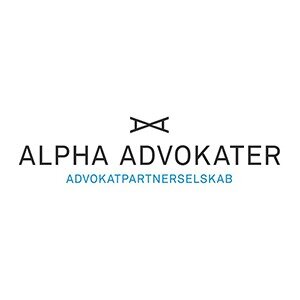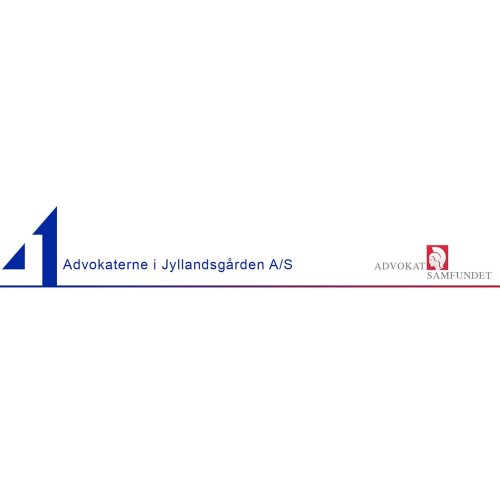Best Sanctions & Export Controls Lawyers in Denmark
Share your needs with us, get contacted by law firms.
Free. Takes 2 min.
Or refine your search by selecting a city:
List of the best lawyers in Denmark
About Sanctions & Export Controls Law in Denmark
Sanctions and export controls are important legal frameworks that regulate the movement of goods, services, technology, and finances across Denmark’s borders. These regulations are designed to prevent illegal trade, enforce international commitments, and protect national security. Denmark is a member of the European Union, meaning that it implements both Danish national rules and EU-wide sanctions and export controls. Additionally, Denmark is bound by international agreements, such as those imposed by the United Nations. Understanding these overlapping regulations is essential for Danish businesses and individuals involved in international trade.
Why You May Need a Lawyer
Legal expertise is often crucial in the field of sanctions and export controls due to the complexity and constantly evolving nature of the laws. You may need a lawyer if you:
- Run a business that exports or imports goods, technology, or software from Denmark
- Engage in financial transactions with individuals, companies, or countries under EU, Danish, or UN sanctions
- Require advice on screening business partners or customers for sanctions risks
- Face allegations of breach or non-compliance with export control or sanctions regulations
- Need help with licensing procedures for dual-use or military goods exports
- Are responding to government investigations, audits, or enforcement actions
- Wish to implement internal compliance programs for your organization
- Require guidance on the application of exceptions or authorizations
A specialized lawyer can help you navigate these legal challenges, avoid significant penalties, and ensure compliance.
Local Laws Overview
Sanctions and export controls in Denmark are governed by a combination of national legislation, European Union regulations, and international commitments. Key aspects include:
- EU Regulations: Denmark enforces EU-wide sanctions, which can include trade restrictions with specific countries, asset freezes, travel bans, or bans on certain economic sectors.
- National Legislation: The Act on Control of the Export of Dual-Use Products and Technology and relevant Executive Orders, as implemented in Denmark, set procedures for licensing and compliance. Violations can lead to substantial civil or criminal penalties.
- Export Controls: Covers the export of goods, software, and technology that could have both civilian and military applications (dual-use items), as well as purely military items.
- Sanctions Implementation: The Danish Business Authority (Erhvervsstyrelsen) and the Ministry of Foreign Affairs are the primary regulatory bodies responsible for administering sanctions and export controls.
- Prohibited Transactions: Certain goods, technology, or services may require a license to export and, in some cases, may be prohibited entirely. Businesses are required to screen all transactions against current sanctions lists.
- Licensing Procedures: Exporters must apply for and obtain the relevant licenses for restricted items. Applications are reviewed on a case-by-case basis, taking into account national security and foreign policy considerations.
Frequently Asked Questions
What are sanctions and export controls?
Sanctions restrict commercial or financial activities with specific countries, entities, or individuals as part of foreign policy and security objectives. Export controls govern the transfer of certain goods, software, and technology to prevent misuse or proliferation.
Who administers sanctions and export controls in Denmark?
The Danish Business Authority is responsible for export controls, including licensing. The Ministry of Foreign Affairs handles the implementation of sanctions, often in coordination with EU authorities.
Do EU sanctions automatically apply in Denmark?
Yes, all EU sanctions are directly applicable in Denmark and must be followed by Danish individuals and organizations.
Which goods are subject to export controls?
Controlled goods include military items, dual-use items (civilian goods and technology that may have military applications), certain chemicals, software, and technology. The official control lists are updated regularly.
Do I always need a license to export goods?
Not all exports require a license, but certain goods, destinations, or end-uses are restricted. It is critical to check the relevant control lists and regulations for each transaction.
Are certain countries or parties completely banned?
Yes, some countries and specific individuals or organizations are subject to comprehensive bans under EU or UN sanctions, meaning virtually no transactions are permitted without specific authorization.
What are the penalties for violations?
Violating Danish or EU sanctions and export controls can lead to severe penalties, including large fines and imprisonment. Businesses may also face reputational harm and exclusion from government contracts.
How can I check if a business partner is sanctioned?
The Danish Business Authority and EU maintain updated public lists of sanctioned parties. Legal counsel or compliance professionals can assist with screening procedures.
Can individuals be held responsible for violations?
Yes, both organizations and individuals, including company directors and compliance officers, can be held liable for breaches of sanctions and export control rules.
How can my business ensure compliance?
Developing an internal compliance program, regular employee training, and conducting due diligence checks before concluding transactions are essential steps. Legal advice can help tailor procedures to your risks.
Additional Resources
- Danish Business Authority (Erhvervsstyrelsen): Provides detailed guidance, licensing information, and official sanction lists.
- Ministry of Foreign Affairs of Denmark: Publishes updates on foreign policy decisions, including changes to sanctions regimes.
- European Commission - Sanctions: Central resource for EU-wide sanctions measures and regulations.
- United Nations Security Council: Source for information on international sanctions adopted at the UN level.
- Compliance and trade associations: Organizations such as the Danish Export Association offer sector-specific guidance and networking.
Next Steps
If you believe your business or personal activities may fall under Danish or EU sanctions and export controls, you should take the following steps:
- Assess your current practices with respect to international trade and transactions.
- Consult the official control lists provided by the Danish authorities and the EU.
- Contact a lawyer specializing in Danish sanctions and export control law to discuss your specific situation.
- Consider implementing or updating compliance procedures within your organization.
- Stay informed about legal updates, as sanctions policies often change in response to global developments.
Expert legal advice can help you avoid costly mistakes and ensure that your activities remain in full compliance with the law.
Lawzana helps you find the best lawyers and law firms in Denmark through a curated and pre-screened list of qualified legal professionals. Our platform offers rankings and detailed profiles of attorneys and law firms, allowing you to compare based on practice areas, including Sanctions & Export Controls, experience, and client feedback.
Each profile includes a description of the firm's areas of practice, client reviews, team members and partners, year of establishment, spoken languages, office locations, contact information, social media presence, and any published articles or resources. Most firms on our platform speak English and are experienced in both local and international legal matters.
Get a quote from top-rated law firms in Denmark — quickly, securely, and without unnecessary hassle.
Disclaimer:
The information provided on this page is for general informational purposes only and does not constitute legal advice. While we strive to ensure the accuracy and relevance of the content, legal information may change over time, and interpretations of the law can vary. You should always consult with a qualified legal professional for advice specific to your situation.
We disclaim all liability for actions taken or not taken based on the content of this page. If you believe any information is incorrect or outdated, please contact us, and we will review and update it where appropriate.
Browse sanctions & export controls law firms by city in Denmark
Refine your search by selecting a city.















